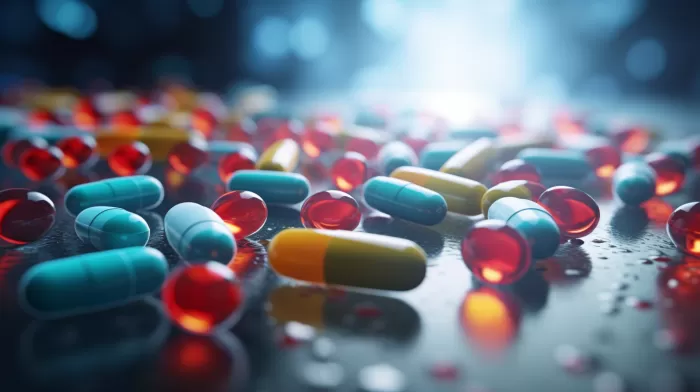Even if you grow your own medicinal herbs in your five-acre backyard, get most of your medical care from a naturopath and buy your groceries from food co-ops, farmer’s markets and CSAs, you’ve probably had a dose of prescription antibiotics in the past decade or so.
Maybe it was the time you cut yourself with the hedge trimmer. Or when your harmless cold turned into not-so-harmless pneumonia. Or when you developed a gnarly UTI on your nine-hour flight back from Paris. Whatever inspired you to pop some prescription antibiotics, you were probably grateful at the time to have them. But here’s the thing…
As awesome as antibiotics are in those dire moments when you need relief from nasty bacteria, we all know they come with risks… some bigger than others. The biggest antibiotic-related risk of all? Probably cancer. A new study shows taking certain antibiotics can increase your risk of the big C. But here’s the weird thing… it can also reduce your risk.
The connection between antibiotics and cancer is anything but straightforward
Researchers from Johns Hopkins University School of Medicine recently published a study that revealed some surprising things about the connection between antibiotics and colon cancer.
The study included health data from nearly 30,000 people between 40 and 90 years old who had either colon or rectal cancer. They also looked at health data from the same number of people who didn’t develop cancer. This data included how often these people used oral antibiotics (pills and tablets).
What researchers found was fascinating… and surprising:
- 70 percent of people who developed cancer had been prescribed oral antibiotics. Only 68 percent of people without cancer had been prescribed oral antibiotics. So, antibiotics only caused a slightly elevated cancer risk.
- The risk for colon cancer was highest in those who’d taken antibiotics more than 10 years before being diagnosed.
- Cancer risk varied depending on the type of antibiotic people took. Penicillins, for example, increased risk of colon cancer in the first and middle parts of the colon. Tetracyclines, however, decreased the risk of rectum cancer in the last part of the bowel.
- Taking antibiotics for 16 days increased the risk of cancer. But taking antibiotics for more than 60 days decreased the risk of colon cancer.
When you clicked on this article, you probably expected me to tell you that big bad antibiotics increase your colon cancer risk and that you shouldn’t use them. But the truth is clearly a lot more complex than that.
Become a master of microbiome health
You may be confused about what health advice to take away from this study. So, let me tell you about my big takeaway…
Changes to your microbiome trigger serious changes in your disease risk. That means you should do everything in your power to help your microbiome thrive. That may mean taking antibiotics from time to time when something bad has taken hold. But more importantly, it means making microbiome-friendly choices every day, like:
- Cutting back on sugar and artificial sweeteners. Research shows that sugar and artificial sweeteners like aspartame help disease-causing gut bacteria to thrive.
- Eating plenty of fermented foods. Fermented foods provide a natural dose of healthy probiotics that improve gut diversity and overall gut health. So, sneak in a kombucha, kefir, sauerkraut or your favorite fermented treat daily.
- Fueling yourself with fiber. Did you know that fiber feeds the good bacteria in your gut? Prebiotic fiber is the kind you need most for a healthy gut. You can find it in foods like asparagus, bananas, chicory, garlic, Jerusalem artichoke, onions, and whole grains.
- Exercising. This tip might surprise you. What does exercise have to do with the bacteria in your gut? But research shows that exercise increases the number of microbes in your gut that produce a short-chain fatty acid called butyrate. Butyrate boosts the health of intestinal cells, lowers inflammation and improves overall gut health.
Sources:
- These common antibiotics could increase colon cancer risk — MedicalXpress
- Relationships between diet-related changes in the gut microbiome and cognitive flexibility — Neuroscience
- Low-Dose Aspartame Consumption Differentially Affects Gut Microbiota-Host Metabolic Interactions in the Diet-Induced Obese Rat — PLOS One
- Top Fiber-Rich Foods for Good Gut Bacteria — Eating Well
- 10 ways to improve gut health — Medical News Today



